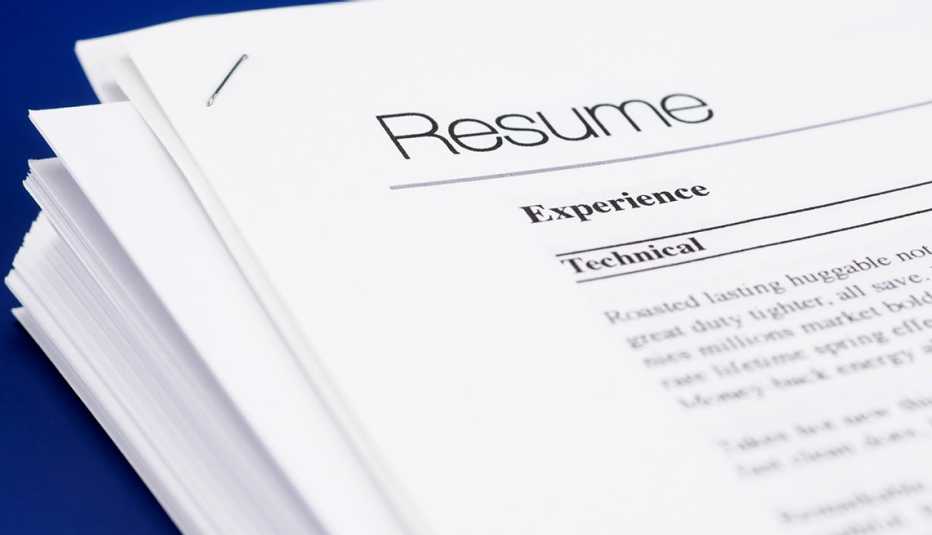Staying Fit


If you're not getting results from your resume, it could be more than a poor job market. You've had years of experience and a stellar job record. So why don't employers look at your resume and want to hire you on the spot?
The answer may lie in one word: accomplishments. The key to writing accomplishments is to focus on results. Your resume can be loaded with details about your previous jobs, but without compelling accomplishments, it will blend in with hundreds like it.


AARP Membership— $12 for your first year when you sign up for Automatic Renewal
Get instant access to members-only products and hundreds of discounts, a free second membership, and a subscription to AARP the Magazine.
What Is an Accomplishment?
Accomplishments (also called achievements) are different from abilities, duties, or strengths. Abilities are what you can do, duties are what you have done, and strengths are what you do well. Accomplishments show:
- The specific actions you have taken in a particular situation
- The skills and abilities you used to meet a challenge
- The results or outcomes you achieved
The following example is a job responsibility, not an accomplishment: "Wrote grant proposals to numerous funding sources to support program."
To turn this into an accomplishment, show the results and benefits: "Wrote three successful grant applications to private foundations, resulting in funding to serve an additional 100 clients."
Write Down Your Accomplishments
Before you start writing your resume, draw up a list of accomplishments. You won't use the same ones in every resume, so have some in reserve for different types of positions. Don't forget that your volunteer work and education can also be counted as accomplishments—as long as they are related to the job you want.
To jog your memory about your accomplishments, ask yourself these questions:

































































More From AARP
How do I find out how much the Windfall Elimination Provision affects my benefits?
Social Security Resource CenterBiggest Social Security Changes for 2023
Big COLA fuels benefit boost while Medicare premium deductions go down